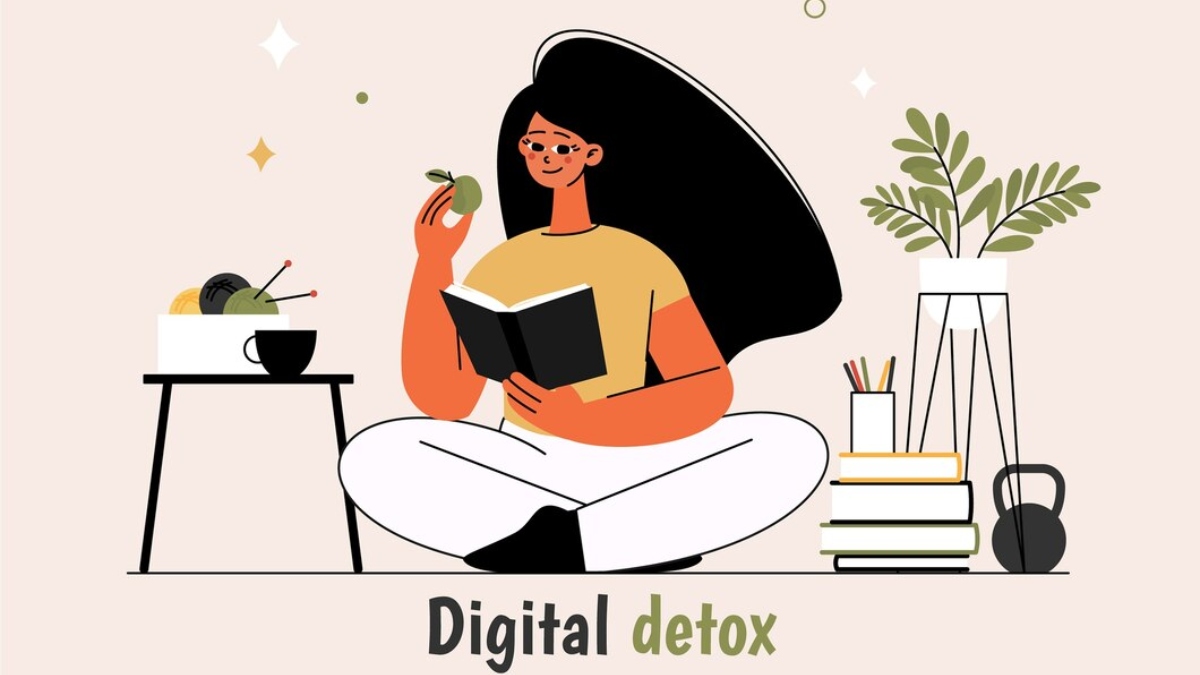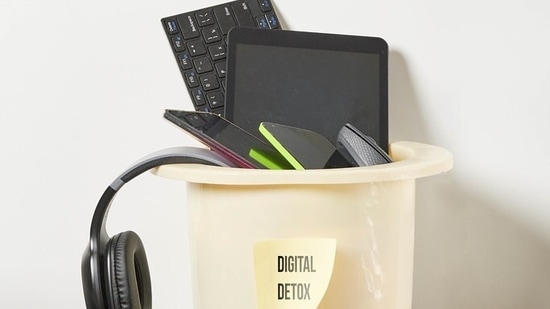
You constantly find yourself mindlessly scrolling through your phone, checking notifications and emails even when you know there’s nothing there. You spend hours staring at screens, flicking from app to app without even thinking about it. It’s become such a normal part of daily life that you don’t even realize how much time you waste on digital devices. But what if you took a step back and reevaluated your relationship with technology? Ditching digital, even for just a little while each day, can have huge benefits for your health and happiness. Reducing screen time can help lower stress, improve sleep, boost focus and concentration, strengthen real world relationships, and give you more time to enjoy life’s simple pleasures. In this article, we’ll explore the perks of powering down and provide tips for creating a healthier balance with technology in your life.
The Dangers of Too Much Screen Time
Too much screen time – whether from your phone, tablet, laptop or TV – is terrible for your health and happiness. Studies show that excessive tech use is linked to anxiety, depression, sleep problems, and more.
Spending hours staring at lit-up screens messes with your body’s circadian rhythm and natural wake-sleep cycle. The blue light they emit suppresses melatonin production, making it harder to fall asleep. Most experts recommend avoiding screens 1 hour before bed.
Social media and news feeds are designed to keep you endlessly scrolling. But constantly comparing yourself to others and being bombarded with information leads to feelings of inadequacy and fear of missing out. Limit social media to 30 minutes a day.
When you’re glued to a screen, you’re not exercising, spending time with loved ones, engaging in hobbies, or enjoying nature. Make time for real-world social interaction and activities that spark joy. Your relationships, experiences and mental well-being will benefit.
Ditch the tech and do something restorative. Read a book, take a walk, cook a meal, call a friend. Disconnecting from the digital world for a while each day is one of the best things you can do for your health and happiness. Your body and mind will thank you.

How to Take a Digital Detox
It’s time to unplug and rediscover the little pleasures in life. Here are some tips to help you take a break from technology and emerge recharged:
- Pick a set period of time to avoid screens, like a full day or week. Start with just a few hours on the weekend and build up from there.
- Let friends and family know you’ll be unavailable so they don’t worry or interrupt your detox. Put an out of office message on your devices too.
- Remove social media apps from your phone and disable notifications on your devices. The less temptation, the better.
- Find alternatives to fill your time like reading, exercising, cooking, or pursuing a hobby. Do something creative that engages your mind.
- Spend time in nature. Go for a walk outside, sit in your yard, or visit a local park. Fresh air and greenery do wonders for your wellbeing.
- Get together with others in person. Call a friend, meet for coffee, or plan a fun outing together. Real social interaction can help combat feelings of boredom or restlessness.
- Keep a journal to record your experiences. Note any changes in your thoughts, feelings, and behaviors. Refer back to see your progress and stay motivated for future detox periods.
Giving yourself a break from technology may feel challenging at first, but sticking with it can help you gain a healthier balance and new appreciation for life’s simple pleasures. Why not give it a try? Your mind and body will thank you.

The Benefits of Unplugging From Technology
Put down your phone, close your laptop, power off the TV and unplugging from technology and digital media, even for just a short time each day, can do wonders for both your physical and mental wellbeing.
Taking a break from technology helps reduce stress and anxiety. Constant connectivity means constantly worrying about what you’re missing on social media or in your inbox. Disconnecting gives your mind a chance to rest and de-stress.
You’ll sleep better at night without the blue light from screens disrupting your circadian rhythm. Studies show exposure to blue light before bed can make it harder to fall asleep and reduce sleep quality.
Unplugging boosts productivity and focus. Notifications and distractions from your devices fracture your attention and make you less efficient. Giving your brain a break helps recharge your cognitive abilities and makes you better able to focus when you reconnect.
Spending less time online gives you more time for exercise, social interaction, and pursuing hobbies. Rather than mindlessly scrolling through social media, you can go for a walk outside, read a book, cook a meal, call a friend, or engage in whatever activity brings you joy.
In today’s technology-saturated world, making the effort to unplug may be challenging but the benefits to your wellbeing are well worth it. Even taking periodic breaks from your digital devices can help you feel less stressed, sleep better, increase productivity, and have more time to do the things that really matter in life. Your happiness and health will thank you.
Conclusion
Bottom line? Ditching digital isn’t about completely cutting technology out of your life. It’s about being more mindful of your media habits and how they impact your wellbeing. Take some time to reflect on when you feel happiest and most present. Is it when you’ve just spent an hour scrolling? Or is it after you’ve gone for a walk without your phone? Small changes like turning off notifications, limiting social media, and scheduling tech-free time can make a big difference. Don’t be afraid to experiment and find what works best for you. The benefits of ditching digital every now and then? Less stress, more mindfulness, better sleep, and deeper connections. Your health and happiness are worth unplugging for.



